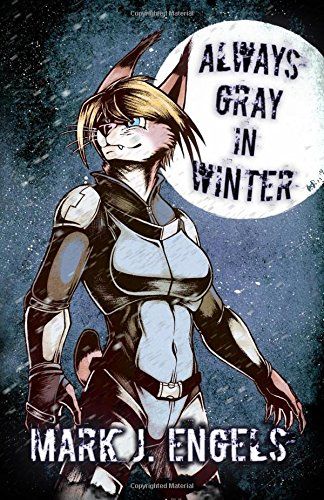Review by Donald Jacob Uitvlugt
And Then Things Got Hairy...
They’ve lived among us humans for centuries, millennia even. They look like us, most of the time, but they are not human. They’re faster, stronger, more agile. When the moon is right or during moments of great emotional stress, they change, taken over by a bloodlust that is nearly uncontrollable. To most, they are myth or legend. To a handful of shadowy government agencies, they are tactical assets to be exploited in international games of power.
To themselves, they are the Children of the Affliction. Aliuranthropes. Cat-people.
Pawly Katczynski is dealing with post-traumatic stress disorder the best way she knows how: staying in her shifted form and taking out sex slave traffickers in the San Francisco Bay area. But her family is worried about the young woman. Can they bring her to her senses in time to help rescue the clan’s patriarch and his important research from North Korean agents? Some of whom wear hauntingly familiar faces...
Always Gray in Winter is the first novel by Mark J. Engels. It reads as part international thriller and part generational family saga, with a pleasing pinch of star-crossed romance for seasoning. Oh yeah, and there’s kick-ass cat-people. It took some investing for me to get into the plot at first, but no more than for a typical work of speculative fiction. And I have the suspicion that my disorientation made me more empathetic to Pawly’s situation. I was figuring things out right along with her.
Engels handles multiple viewpoints and flashbacks with great finesse, though I for one would have liked datelines or at least some typographical indication of when the flashbacks began and ended. I was able to figure things most things out from context, but a little bit of signposting would have made the reading that much smoother. More than juggling an impressive cast of characters, it’s in action that the author really shines. The choreography of the fight scenes is beautiful, even when the results are brutal. I’m led to suspect that the author is a student of the martial arts. At the very least, he must have watched a lot of martial arts anime to good effect.
His various settings are also handled well, focusing on telling details rather than lengthy descriptive passages. I cannot speak to his accuracy about San Francisco or the Polish countryside, but he hits Chigagoland right on the nose (e.g., the subculture of the hockey-obsessed and love of euchre). Getting the Midwest right, I gladly give him the benefit of the doubt for the rest.
I also absolutely love the subtle worldbuilding throughout the story. There is just the right amount of tantalizing glimpses of aliuranthropic culture, from the history of their clans, to their belief systems and their interactions with humans through the years. But these glimpses rise integrally within the story. No infodumps here. Engels also has a deft hand with the shifted forms of the aliuranthropes. The best of these passages almost shimmers with otherness when describing the characters’ heightened senses and abilities.
Yet the themes of the story are universal: recovery after tragedy, love of family, the conflict between duty and love. Things resolve for Pawly in a way I never would have expected from the beginning. And it is a resolution, not an ending. There is plenty more story of the Katczynski clan for Mr. Engels to tell.
I for one look forward to reading it.
